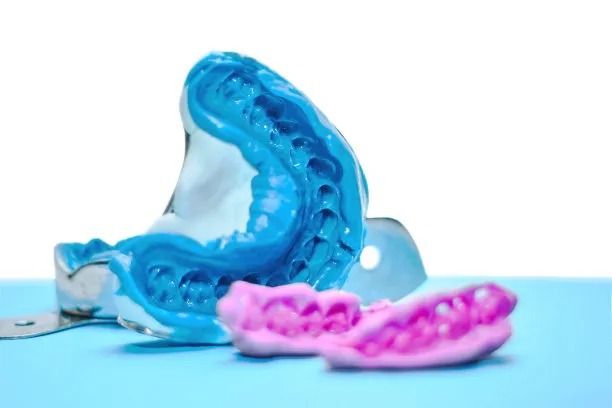Summary: Dental fillings are a common dental procedure for restoring cavities and damaged teeth. While they effectively return functionality and aesthetics, certain precautions must be taken both before and after the procedure to ensure optimal oral health. This article outlines essential guidelines covering pre-appointment tips, post-filling care, dietary considerations, and follow-up practices. By adhering to these precautions, patients can achieve lasting results and maintain optimal oral hygiene.
1. Essential Pre-Appointment Tips

Before undergoing a dental filling procedure, it’s vital to have a thorough understanding of what to expect. Booking a consultation is the first step; discussing your medical history, allergies, and any medications with your dentist allows them to tailor the filling process to your needs. This dialogue helps ensure that any necessary precautions are put in place to avoid complications.
Additionally, setting a schedule for the appointment is crucial. Choosing a time when you can relax post-procedure is wise, as you may experience numbness or discomfort afterward. Arranging for transportation home is essential, particularly if local anesthetics are used, as they can impair your ability to drive or operate machinery immediately after treatment.
Finally, preparing mentally for the procedure can reduce anxiety. Understanding the process, including the tools involved and the duration, can make the experience more comfortable. Consider discussing any fears with your dentist, as they can provide calming techniques or reassure you about the filling procedure.
2. Care Post-Filling: Important Steps
After a dental filling, proper care is paramount to ensure the success of the restoration. Initially, it is essential to avoid biting on the treated side of your mouth until the numbness fully wears off. This will prevent accidental damage to your restoration or even injury to your cheeks or tongue due to lack of sensation.
Managing discomfort is another important consideration. Over-the-counter pain medications, such as ibuprofen or acetaminophen, can help alleviate any pain following the procedure. However, if pain persists or escalates beyond normal discomfort, contacting your dentist immediately is advised as it may indicate underlying issues.
Maintaining good oral hygiene is critical after receiving a dental filling. Gentle brushing and flossing should be resumed promptly but with care around the filling. Using a soft-bristle toothbrush and fluoride toothpaste can help keep the area clean and free from plaque buildup, which is essential to prevent further decay around the filling.
3. Dietary Considerations Post-Procedure
What you eat after getting a dental filling matters significantly. It is best to avoid very hot or cold foods and beverages for at least 24 hours, as temperature sensitivity can be heightened due to the healing process. Opt for soft, easy-to-chew foods during this period, such as yogurt or mashed potatoes, to avoid applying excessive pressure on the filled tooth.
Additionally, it’s wise to refrain from consuming sticky or hard foods for several days. Foods like caramels or whole nuts can pull at the filling and potentially dislodge it. By taking these dietary precautions, patients can ensure that their fillings have the best chance of lasting and functioning as intended.
Staying hydrated is equally important. Drinking plenty of water helps wash away food particles and bacteria that could lead to decay around the filling. Aim for a balanced diet that supports oral health, including plenty of fruits, vegetables, and whole grains.
4. Importance of Follow-Up Care
Follow-up visits are crucial to ensuring that the dental filling is still intact and functioning properly. Schedule a check-up with your dentist approximately six months after the filling procedure. This visit allows for a professional assessment of the filling and any necessary adjustments to be made.
During the follow-up consultation, it’s an excellent opportunity to discuss any persistent sensitivity or discomfort you may be experiencing. Your dentist can assess whether these sensations are normal or if further treatment is needed. Regular visits contribute to your long-term oral health and help in identifying any early signs of dental issues.
Moreover, maintaining ongoing communication with your dental care team contributes to effective oral health management. They can offer advice tailored to your needs, including additional hygiene practices, preventive care, and recommendations for any specific products that promote healing and restoration longevity.
Summary:
In conclusion, by adhering to essential pre- and post-filling precautions, patients can ensure optimal oral health and maximize the benefits of dental fillings. From thorough consultations to mindful post-care practices and regular follow-ups, each step contributes to effective restoration management.
Taking these measures helps maintain your dental work and protect your overall oral health. Following these guidelines can lead to lasting results and a healthier smile.
This article is compiled by Vickong Dental and the content is for reference only.
Vickong Dental
Vickong Dental is a large medical group established in Hong Kong in 2008 by professors from well-known medical universities in Guangdong and Hong Kong, as well as medical doctors from key national '985' universities (including Master's supervisors and senior professors). The chain of branches brings together expert dentists with PhDs and Master's degrees from Hong Kong and Mainland China, committed to providing high-quality dental treatment.
"Vickong Dental Practices the University Motto of 'Healing and Serving Society,' with a Stable Operation for Sixteen Years. It Has Been honored with Hong Kong Enterprise Leaders's Choice,' and is a Global Trusted Implant Center for the Nobel Implant System. Recommended by Hong Kong Metro Broadcast and Guangdong Television, it Serves Customers from Over Thirty Countries and Regions, Gaining the Trust and Favor of Citizens from the Guangdong-Hong Kong-Macau Greater Bay Area and Surrounding Cities.

Thousands of customers' unanimous praise
The most recognized and highly recommended dental service by customers in the Guangdong-Hong Kong-Macau Greater Bay Area
We Ensure You Receive Detailed Care and Attention Here
Hong Kong standards, Shenzhen prices, Your Trusted English-speaking dentists

Vickong Dental Medical-Grade Instrument Disinfection Process
Vickong Dental Medical-Grade Instrument Disinfection Process

Vickong Dental Chain: A Warm and Comfortable Environment for Treatment






Appointment Hours

Q&A
Why choose Vickong Dental?
Vickong Dental practices the university motto 「Medicine to Benefit Society」, with each branch bringing together highly qualified dentists with doctoral and master’s degrees from Hong Kong and the Mainland, and has maintained seventeen years of steady operation。Recipient of 「2024 Hong Kong Enterprise Leaders Brand」, 「2025 Hong Kong Enterprise Leaders Brand」, a Nobel Biocare Global Trusted Implant Center, and a brand recommended by Metro Radio Hong Kong and Guangdong TV。
To date, we have served customers from more than thirty countries and regions,earning exceptionally high word-of-mouth recognition and trusted recommendations from residents across the Guangdong-Hong Kong-Macao Greater Bay Area and surrounding cities
We have eight major branches in Zhuhai、Shenzhen,and a consultation and service assurance center in Hong Kong,so you can book a free consultation at any time for any questions,which is very reassuring.
If I do not accept the quotation after the CT scan, will I be charged??
No! As long as the actual treatment has not started, you will not be charged any fees.
Will there be any additional charges during the treatment process?
No, there won’t be any additional charges. Before treatment begins, we will clearly explain the treatment plan and its corresponding fees. Only after the patient agrees and signs the consent form will we proceed with the dental service.
Can I pay in Hong Kong dollars?
Yes. Vickong Dental accepts payment in Hong Kong dollars. The amount will be converted based on the exchange rate of the day, and the applicable rate will be clearly communicated to you in advance.
Can I reschedule my appointment at any time?
Yes. Please contact us via **WeChat** or **WhatsApp** as early as possible, providing your original appointment time and details, along with your preferred new date and time slot for rescheduling.













